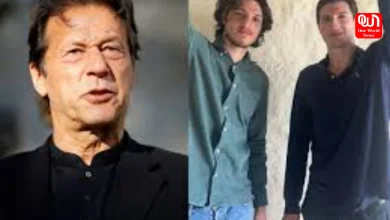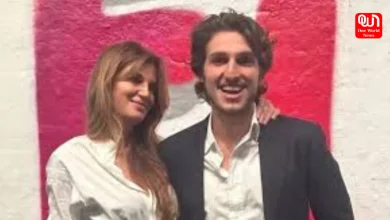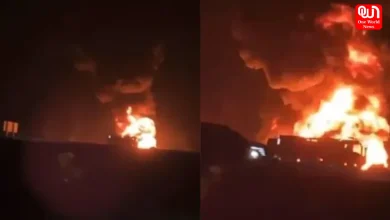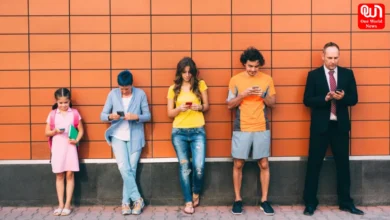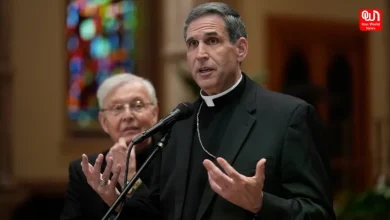Sidhu Moosewala final Journey, an incident that nation will never forget

Sidhu Moose Wala Demise Questions Gun Culture Of Punjab, 4 Reasons Behind this toxic Love
Highlights:
- Punjabi Celebs Who died too soon
- How does Moosewala promote Gun Culture in Punjab?
- Toxic Gun Culture of Punjab
- Why do Punjabis romanticize guns, and how is it impacting people’s lives?
- #Opinion
Controversial Punjabi singer Shubhdeep Singh Sidhu also known as Sidhu Moosewala was shot dead in broad daylight. The unfortunate incident happened in his village in Mansa district, where he was murdered. His sudden assassination has left the entire nation shocked. Extremely popular among the youth, Moosewala had over one crore subscribers on his YouTube channel and over 8 million followers on Instagram. Punjab is known for its culture but it is also known for its toxic gun culture. Moosewala’s demise left his fans shattered. We have compiled a list of Punjabi artists who died young and also tried to decode the reasons behind toxic Gun culture in Punjab.
Punjabi Celebs Who died too soon
Deep Singh Sidhu
View this post on Instagram
Deep Singh Sidhu- 37 year- old, died in a car crash in February 2022. Sindh was a lawyer and an actor and gained popularity for advocating farmer’s protests. Sidhu was accused of playing a part in the conspiracy to hoist the Sikh flag at Lal Quila on Republic Day in 2021. However, some farmer unions had distanced themselves as Deep Singh campaigned for Sunny Deol in the 2019 Lok Sabha Elections. Nevertheless, Sindhu denied the allegation to strings attached to BJP.
Ishmeet Singh
Winner of a reality singing show ‘Amul Star Voice of India,’ Ishmeet Singh hailed from Ludhiana of Punjab and left this world at 19. Besides Star Plus’s performance, he participated in Jo jeeta Wohi Superstar.
His first album was a religious one titled ‘Satguru Tumre Kaaj Savaare.’ The singer was in the Maldives for a concert and drowned in a swimming pool. As per reports, he had a head injury which made the drowning suspicious. He was only 19-year-old during his cremation. However, his death mystery is still unsolved.
Diljaan
View this post on Instagram
Diljaan was a rising Punjabi singer who grabbed the limelight via being a contestant on Sur Kshetra and Awaaz Punjab Di. Later, he sang many songs like Adha Pind, Yaaran Di Gal, Shoon Karke, Har Pal, First Love etc. Unfortunately, on 30th March 2021, he left this world in a road accident near Amritsar. He passed away in his early thirties.
And now, Sindhu Moosewala was the most recent one. The withdrawal of security cover and the assassination of Moosewala has raised many questions on the Punjab government. However, the responsibility for Moosewala’s murder has been claimed by Lawrence Bishnoi to avenge Vicky Middukhera’s murder.
The incident also directs us to the popular gun culture of Punjab and how they glorify it, including Moose Wala.
How does Moosewala promote Gun Culture in Punjab?
Moosewala was not only famous for his songs but faced several cases over his songs for allegedly promoting gun culture and violence. In 2020, the then Punjab government, led by Captain Amarinder Singh, had booked him under Arms Act. He was accused of promoting gun culture in his ‘panj golian.’ During covid lockdown, he was booked for firing with an AK-47 rifle in a firing range. He created a stir by ‘misusing the name of Sikh warrior Mai Bhago in his track ‘Jatti Jeona Morh Di Bandook Wargi.’
Several Sikh Bodies demanded his arrest, following which he later apologized. In 2021, Moosewala joined the Congress party before the Punjab assembly elections and was addressed as a youth icon by then Congress chief Navjot Singh Sindhu.
Toxic Gun Culture of Punjab
As per CEO Punjab, Dr. S Karuna Raju, more than 3,50000 licensed weapons have been deposited. Since 2018-to 20, Punjab has been the 3rd largest state in issuing gun licenses. However, NCRB says, more than 830 unlicensed arms were seized in 2020 from Punjab. IAS Chander Gaind, serving in Patiala, says, “Punjabis crave guns. From calling a chief minister to officers, they can do anything to obtain a gun.”
Why do Punjabis romanticize guns, and how is it impacting people’s lives?
There are four factors responsible for Gun culture:
1. The militancy emergence in Punjab in 1980
As per MHA, the Majority of the gun licenses were in 1980-90, witnessing high militancy in the state at that time. The year 1991 was the peak of Punjab terrorism.
2. Change in police administration
In 2010, the Akali Dal and BJP led government introduced a Halqa system. As per this system, the elected MLAs and non-elected MLAs of the ruling government were given the power to install their preferred SHOs in the police stations in their respective constituencies. This handover of control of the police to party leaders. As SHOs play a crucial role in the gun licensing approval procedure, the party leader started proving gun licenses to their carder to increase their support.
3. Punjabi songs
Srishti Jaiswal, an independent journalist, wrote an article on the same. Pop culture made guns look cool. In 2021, famous Punjabi Singer Babbu Mann experimented with the phenomenon of “gun glorification” in his song Kabza. Later, many Punjabi singers followed their path and were not ready to stop yet.
4. Caste system
Rajesh Gill, a sociology professor, explained that caste plays a vital role in Punjab’s Gun culture and is often associated with status. Upper-caste Jatt-Sikhs popularized this as a prestige and fashion statement. There is a custom of air firing on many occasions and ceremonies, resulting in accidental death. The amount of aggression, violence, and drugs & alcohol promoted in Punjabi songs deceive youth with the image of a ‘real man.’ And they believe this is the right way to live life. Now, with the demise of Sindhu Moosewala, netizens are also saying that the singer became the victim of the same culture which he promoted.
#Opinion
No government has taken decisive actions to review and reduce this toxic culture. However, this is not just the responsibility of the government. Youth mindlessly following this gun culture have to understand its regressive effects.

